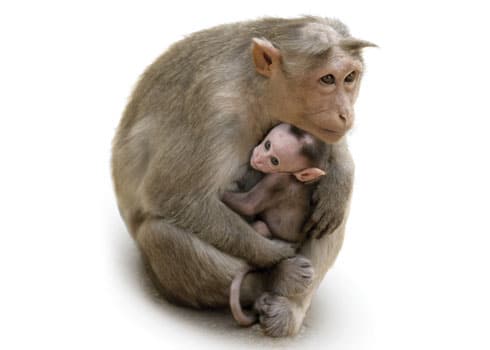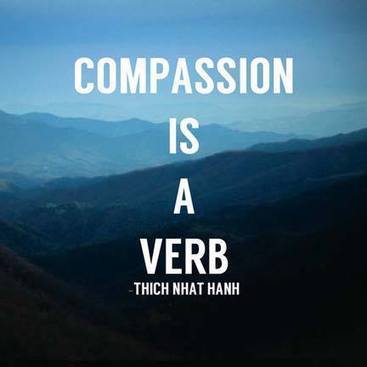Compassion and empathy are often confused, and used interchangeably in that confusion.
A term floating around of late that you may have heard is ‘COMPASSION FATIGUE’, and from the compassion training course I did with Margaret Cullen and Dr. Erika Rosenberg of Stanford University, and attending a separate and wonderful talk by Dr. James Doty, I learned this, what I am about to and would like to share … I think I’ve got it correct to say:
Compassion is the recognising of the suffering of others, and it usually involves an emotional response in the witness, along with the desire to help or alleviate this suffering.
Empathy, as characterised by researchers, is the intuitive or emotional experience of another person’s emotions or feelings. For example, when you might cry when a friend tells you their story which is very sad – this is empathy.
SO EMPATHY IS THE RESPONSE TO COMPASSION.
Now if you have heard the term COMPASSION FATIGUE, which is used to describe a type of ‘burn out’, experienced by people in the healing industry, for example: counsellors, nurses and psychologists etc, you might choose to remember that compassion is not the thing that fatigues us, it is in fact an unhealthy and/or inappropriate application of empathy that wears us out.
And you don’t have to be a professional to experience this. You might be the best friend that’s sworn to secrecy, and listens to all the problems of a friend, and about the suffering they endure, and perhaps you are then left with the residue of these sufferings, even though they are your friend’s experiences not your own.
I guess the reason I raise it, is because I heard it being used today, and I’m not sure I made as eloquent a response as I would have liked. I feel I pointed out the difference in a way that looked like I was correcting the person and under the circumstances that was inappropriate and unsophisticated of me. That person may never see this but if nothing else, me writing it down here, is at least a practice for me to articulate what I feel is important to raise on the topic.
And maybe at the same time I can bring some awareness about the importance of us continuing to practice compassion, without fear of fatigue.
Research suggests that teenagers are experiencing more depression and anxiety than they did a decade or more ago, with doctors reporting an escalation in the most severe cases. One of the symptoms experienced, when people become depressed, and experience anxiety, is a sense of isolation. A sense of having no one to talk to, a perception that nobody will understand, and a sense of guilt for the flat (at the very least) feelings these conditions bring. And so it can create a vicious circle.
This is just one example of why it is important for me to keep practising compassion.
Do we not, in these times of increased depression and anxiety, need to heighten our awareness of those around us, of those who may feel lonely or isolated, of those in need? If you don’t think so, then what about this: if the incidence of depression and anxiety is increasing so much, then is it not probable that it could be you experiencing this, or your child, or someone you love or care about? Would you want them to experience these feelings of despair, and feel so all alone?
It really is a practice.
The pace of life seems to be getting busier and more frantic day by day, it is so EASY for us to say, I don’t have time to worry about others, or spend hours listening to so and so’s problems, I’ve got my own family to worry about, and that’s ok … I think a lot of people would like to be able to help but just can’t find the time that is required. It’s understandable, it’s just the way things seem to be …

However, I just wonder that as humans, if we can really afford not to keep practising compassion.
This is not just me being all ‘let’s-all-live-in-love-and-peace-like’!
Charles Darwin described how natural selection favoured the evolution of compassion, regardless of what originally motivated such behaviour;
Practising compassion is necessary for the human race to survive!
Even if we ourselves don’t have time or space or ability to practice the EMPATHY that may be required to help someone else, at least having the awareness that they are in need is a starting point. Perhaps we can work in groups to work out ways to help. Hell, maybe we could just say good morning when we pass them in the street, or pay for their coffee anonymously, which doesn’t cost much – in either time or money, but surely there will be SOMETHING we each can do, no matter how small or seemingly insignificant, to make a little difference in that person’s world.
Maybe it’s just about becoming a little bit more conscious of those around us. That is where the seeds of compassion can grow.
So you see, it’s not the compassion we need to temper, for some of us it is the empathy.
As such, maybe let’s not continue to use the term compassion-fatigue anymore, because compassion is the seed we want to grow!
Whilst some of us are gifted, overqualified and overworked in the empathy department, that is a separate issue. To label that compassion-fatigue may have disastrous effects for humanity!
Learning how to draw boundaries on our levels of empathy, is vital to counter-act EMPATHY-FATIGUE.
I will be outlining some of those in a future post. But for now, I just wanted to point out the basic difference between compassion and empathy, to encourage the practice of compassion, and to highlight the idea of empathy-fatigue over compassion-fatigue.
Because when I ask myself the questions:
Can we really over-practice compassion?
Is it likely we’ll get burnt-out emotionally or otherwise, by practising having awareness of a work-mate’s needs, or sensing disappointment in the girl who takes my coffee order every morning, or wondering what kind of a day the bus-driver’s having?
Is it helpful to me as a human in this world, where everyone and everything is connected, to cultivate a sense of separation from others, the inability to read the expression of those around me?
I come back to the word I don’t like to consciously use too much! –
NO!

Compassion is just noticing, just a consciousness, an awareness, that step BEFORE having to actually DO anything. Yes, it IS a verb, it’s a practice, perhaps it takes a discipline to cultivate it, but can this really wear us out?
Crucial
Once we are practising compassion, we need to be mindful how and when we apply empathy.
But let’s keep cultivating our compassion, after all, someday it will probably come back to us.
